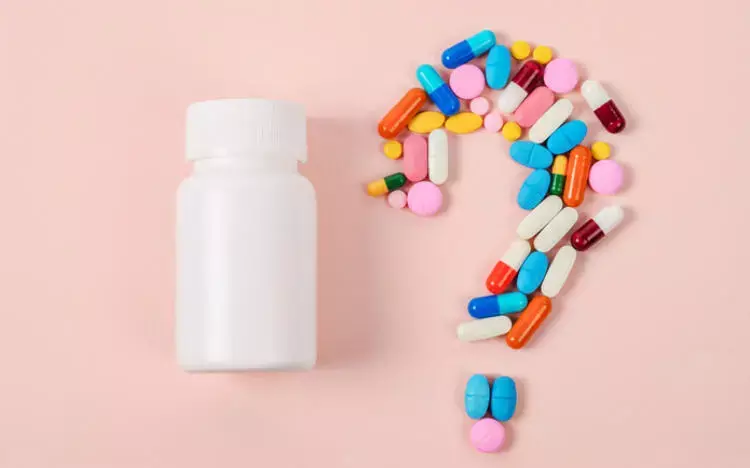- Home
- Medical news & Guidelines
- Anesthesiology
- Cardiology and CTVS
- Critical Care
- Dentistry
- Dermatology
- Diabetes and Endocrinology
- ENT
- Gastroenterology
- Medicine
- Nephrology
- Neurology
- Obstretics-Gynaecology
- Oncology
- Ophthalmology
- Orthopaedics
- Pediatrics-Neonatology
- Psychiatry
- Pulmonology
- Radiology
- Surgery
- Urology
- Laboratory Medicine
- Diet
- Nursing
- Paramedical
- Physiotherapy
- Health news
- Fact Check
- Bone Health Fact Check
- Brain Health Fact Check
- Cancer Related Fact Check
- Child Care Fact Check
- Dental and oral health fact check
- Diabetes and metabolic health fact check
- Diet and Nutrition Fact Check
- Eye and ENT Care Fact Check
- Fitness fact check
- Gut health fact check
- Heart health fact check
- Kidney health fact check
- Medical education fact check
- Men's health fact check
- Respiratory fact check
- Skin and hair care fact check
- Vaccine and Immunization fact check
- Women's health fact check
- AYUSH
- State News
- Andaman and Nicobar Islands
- Andhra Pradesh
- Arunachal Pradesh
- Assam
- Bihar
- Chandigarh
- Chattisgarh
- Dadra and Nagar Haveli
- Daman and Diu
- Delhi
- Goa
- Gujarat
- Haryana
- Himachal Pradesh
- Jammu & Kashmir
- Jharkhand
- Karnataka
- Kerala
- Ladakh
- Lakshadweep
- Madhya Pradesh
- Maharashtra
- Manipur
- Meghalaya
- Mizoram
- Nagaland
- Odisha
- Puducherry
- Punjab
- Rajasthan
- Sikkim
- Tamil Nadu
- Telangana
- Tripura
- Uttar Pradesh
- Uttrakhand
- West Bengal
- Medical Education
- Industry
Antibiotics use for Dental Pain and Swelling: JADA Guidelines

Antibiotics for the target conditions may provide negligible benefits and probably contribute to large harms, to avoid this a group of researchers published clinical recommendations in the journal of the American Dental Association.
An expert panel convened by the American Dental Association Council on Scientific Affairs and the Center for Evidence-Based Dentistry conducted a systematic review and formulated clinical recommendations for the urgent management of symptomatic irreversible pulpitis with or without symptomatic apical periodontitis, pulp necrosis and symptomatic apical periodontitis, or pulp necrosis and localized acute apical abscess using antibiotics, either alone or as adjuncts to definitive, conservative dental treatment (DCDT) in immunocompetent adults.
Types of Studies Reviewed
The authors conducted a search of the literature in MEDLINE, Embase, the Cochrane Library, and the Cumulative Index to Nursing and Allied Health Literature to retrieve evidence on benefits and harms associated with antibiotic use. The authors used the Grading of Recommendations Assessment, Development and Evaluation approach to assessing the certainty in the evidence and the Evidence-to-Decision framework.
Results
The panel formulated 5 clinical recommendations and 2 good practice statements, each specific to the target conditions, for settings in which DCDT is and is not immediately available. With likely negligible benefits and potentially large harms, the panel recommended against using antibiotics in most clinical scenarios, irrespective of DCDT availability. They recommended antibiotics in patients with systemic involvement (for example, malaise or fever) due to the dental conditions or when the risk of experiencing progression to systemic involvement is high.
Recommendations:
The expert panel recommends dentists do not prescribe oral systemic antibiotics for immunocompetent adults with SIP with or without SAP (strong recommendation, low certainty). Clinicians should refer patients for DCDT and provide interim monitoring
The expert panel suggests dentists do not prescribe oral systemic antibiotics for immunocompetent adults with PN-SAP (conditional recommendation, very low certainty). Clinicians should refer patients for DCDT and provide interim monitoring. If DCDT is not feasible, a delayed prescription for oral amoxicillin (500 milligrams, 3 times per d, 3-7 d) or oral penicillin V potassium (500 mg, 4 times per d, 3-7 d) should be provided
The expert panel suggests dentists prescribe oral amoxicillin (500 mg, 3 times per d, 3-7 d) or oral penicillin V potassium (500 mg, 4 times per d, 3-7 d) for immunocompetent adults with PN-LAAA (conditional recommendation, very low certainty). In addition, clinicians should provide urgent referral, because DCDT should not be delayed
The expert panel recommends dentists do not prescribe oral systemic antibiotics as an adjunct to DCDT for immunocompetent adults with PN-SAP or PN-LAAA (strong recommendation, very low certainty)
The expert panel suggests dentists do not prescribe oral systemic antibiotics as an adjunct to DCDT for immunocompetent adults with SIP with or without SAP (conditional recommendation, very low certainty)
Thus, the researchers concluded that evidence suggests that antibiotics for the target conditions may provide negligible benefits and probably contribute to large harms. The expert panel suggests that antibiotics for target conditions be used only when systemic involvement is present and that immediate DCDT should be prioritized in all cases.
Reference:
Evidence-based clinical practice guideline on antibiotic use for the urgent management of pulpal- and periapical-related dental pain and intraoral swelling: A report from the American Dental Association by Peter B. Lockhart, et al.
DOI: https://doi.org/10.1016/j.adaj.2019.08.020
Dr. Shravani Dali has completed her BDS from Pravara institute of medical sciences, loni. Following which she extensively worked in the healthcare sector for 2+ years. She has been actively involved in writing blogs in field of health and wellness. Currently she is pursuing her Masters of public health-health administration from Tata institute of social sciences. She can be contacted at editorial@medicaldialogues.in.
Dr Kamal Kant Kohli-MBBS, DTCD- a chest specialist with more than 30 years of practice and a flair for writing clinical articles, Dr Kamal Kant Kohli joined Medical Dialogues as a Chief Editor of Medical News. Besides writing articles, as an editor, he proofreads and verifies all the medical content published on Medical Dialogues including those coming from journals, studies,medical conferences,guidelines etc. Email: drkohli@medicaldialogues.in. Contact no. 011-43720751


